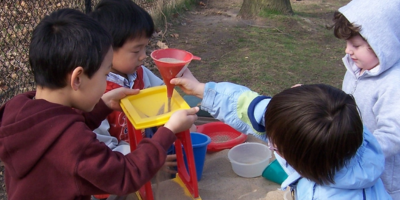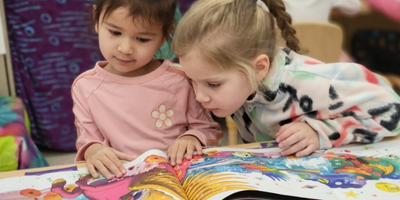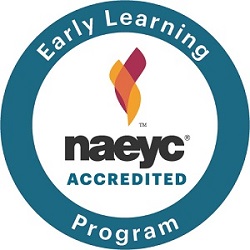What Makes ECDC Unique:
Degreed Teachers
ECDC employs degreed teachers. Lead/Co-Lead Teachers have Bachelor or Master’s Degrees in Education or a related degree (e.g., psychology). Associate Teachers have Associate or Bachelor’s Degrees in Education or a related field. Quality in early childhood programs is directly correlated with teachers who have the knowledge, education and skills to teach young children. ECDC teachers understand child development, know how children learn and the most effective curriculum for young children to develop knowledge, skills, attributes and a disposition for learning now and into the future. ECDC teachers are committed to fostering a love of learning in the precious children entrusted to us in addition to fostering friendships and a happy childhood.
Project Approach Curriculum
ECDC provides a unique educational experience. Children engage in meaningful learning through the Project Approach and Creative Curriculum. Teachers plan intentional integrated, emergent curriculum (literacy, math, science, fine arts, fine/gross motor) throughout the project. Quality children’s literature is used as the basis of our activities. Children are engaged in hands-on activities with concrete materials throughout their day, learning about a variety of subjects in a developmentally appropriate learning environment with excellent teachers. A few examples of the many projects that children engaged in are Community Helpers, Families, Animals, Pumpkins and Harvest, Multicultural Farms and Markets, Construction, Art and Artists, Name Study and Winter/Snow.
College Student Involvement
ECDC is a college lab school with college students completing practica in Education, Psychology, Communicative Disorders, and Social Work. ECDC works with a variety of local colleges/universities including Saint Mary’s College, The University of Notre Dame, Indiana University South Bend, Bethel, Ivy Tech, and Southwestern Michigan College. College student involvement allows ECDC to exceed both NAEYC and State Licensing recommendations for adult to child ratios. College students provide extra hands, laps and adult friends to support children’s activities, learning and play. Our college students participate weekly, building relationships with the children. They read to children, push them on swings, help with art activities and share their special interests, talents and hobbies with the children.
Approach to Child Guidance
Teachers and college students are trained in Rudolf Dreikurs’ non-authoritarian approach to child guidance based on the work of Alfred Adler, which is a positive approach focusing on choices, encouragement, and natural and logical consequences. Class meetings and the democratic problem solving process are also key to the approach. Teachers are also trained in Conscious Discipline. Conscious Discipline teaches children to name their emotions, regulate them, and then solve problems. Teachers problem-solve with children during the child guidance process supporting the children’s involvement in making helpful and friendly choices. Sessions are provided to interested families about the ECDC approach embracing topics such as sibling rivalry, bedtime routines, mealtime routines, and supporting very active children.
Daily Family Communication
Teachers share daily emails that include a summary of the day’s activities and events in addition to ways parents can support their child’s development at home, and also share the early childhood foundations (early childhood standards) they are focusing on for the current week.
Summer Day Camp
ECDC offers a summer day camp program for children up to age 10. Children ages 4 and older go on walking trips on campus and participate in recreational sessions. All children have special activities scheduled throughout the week. Special activities include soccer, yoga, creative dramatics, sing-alongs, picnic lunches, recreational games, gardening, creative dramatics and Spanish. A variety of part time and full time schedules are available during the ECDC summer program at both ECDC program locations.




